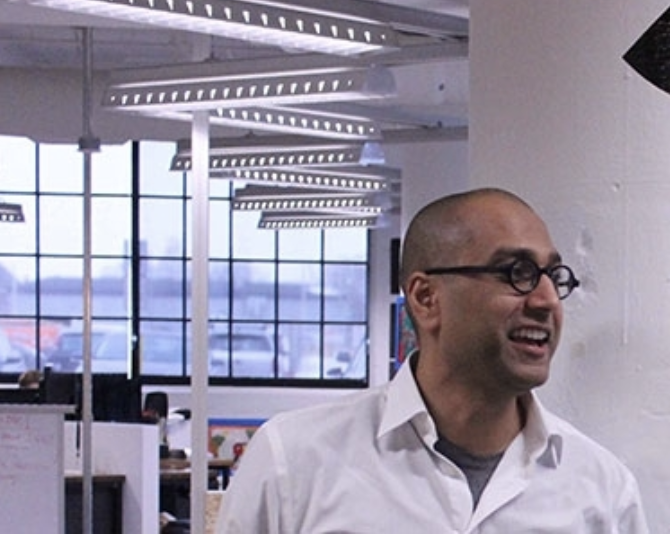Jayesh Patel is founder of Street Democracy. Founded in 2011, Street Democracy is a team of attorneys and legal researchers working at the intersection of poverty and the law to reform the policies and systems that create and perpetuate poverty. Since then, over 400 Detroiters have benefited from their representation and been removed from poverty.
Disclaimer: This is a summary of his answers and not word for word.
How did they get where they are?
I first started out in law school, and then during law school class based on community based lawyering. After law school, I returned to work with the neighborhood that I had previously worked with in that class. I was providing some combination of jobs and legal relief for returning citizens from jail. A few years on and I moved to Detroit, down to a combination of personal and professional reasons. Along with this, it was clear that Detroit was undergoing a brain drain with most people living for the east or west coast, especially when it came to the social justice field. I wanted to be a part of the group that returns to Detroit and helps the city
What is a hurdle they have overcome?
Personally, one hurdle I have to overcome is self-confidence. A lot of times I question myself and find myself thinking “who the f*** am I to solve the problem.” I used to believe that a lot of people in this space have better knowledge and expertise and that I was not on their level. However, when I began to do the work that we are doing in Detroit, I realized that in actual fact there are not that many people doing this work on the ground level, ay-to-day, working with people who really need representation. In truth, not many people care about it. So I have learnt to not doubt myself as much and have confidence that I can make an impact in this field. One personal struggle that I have had is ADD. It has been a lifelong struggle and led to an imposter syndrome feeling on occasions.
How do they describe social entrepreneurship?
Caring about something and then acting on it. A lot of people care about an issue, but the majority do nothing about it. If you are in a non-profit, then you are constantly comparing yourself to other non-profits rather than seeing the benefits you provide to people. We should focus more on the net results on community and the impact we have made rather than constantly compare ourselves. Furthermore, I think that social entrepreneurship can happen anywhere and have an impact on any community. I always try and improve our workplace environment by having Friday beer and popcorn afternoons where everyone can speak. That in itself is a form of social entrepreneurship where both introverts and extroverts are allowed to speak.
Disclaimer: This is a summary of his answers and not word for word.
How did they get where they are?
I first started out in law school, and then during law school class based on community based lawyering. After law school, I returned to work with the neighborhood that I had previously worked with in that class. I was providing some combination of jobs and legal relief for returning citizens from jail. A few years on and I moved to Detroit, down to a combination of personal and professional reasons. Along with this, it was clear that Detroit was undergoing a brain drain with most people living for the east or west coast, especially when it came to the social justice field. I wanted to be a part of the group that returns to Detroit and helps the city
What is a hurdle they have overcome?
Personally, one hurdle I have to overcome is self-confidence. A lot of times I question myself and find myself thinking “who the f*** am I to solve the problem.” I used to believe that a lot of people in this space have better knowledge and expertise and that I was not on their level. However, when I began to do the work that we are doing in Detroit, I realized that in actual fact there are not that many people doing this work on the ground level, ay-to-day, working with people who really need representation. In truth, not many people care about it. So I have learnt to not doubt myself as much and have confidence that I can make an impact in this field. One personal struggle that I have had is ADD. It has been a lifelong struggle and led to an imposter syndrome feeling on occasions.
How do they describe social entrepreneurship?
Caring about something and then acting on it. A lot of people care about an issue, but the majority do nothing about it. If you are in a non-profit, then you are constantly comparing yourself to other non-profits rather than seeing the benefits you provide to people. We should focus more on the net results on community and the impact we have made rather than constantly compare ourselves. Furthermore, I think that social entrepreneurship can happen anywhere and have an impact on any community. I always try and improve our workplace environment by having Friday beer and popcorn afternoons where everyone can speak. That in itself is a form of social entrepreneurship where both introverts and extroverts are allowed to speak.

 RSS Feed
RSS Feed
